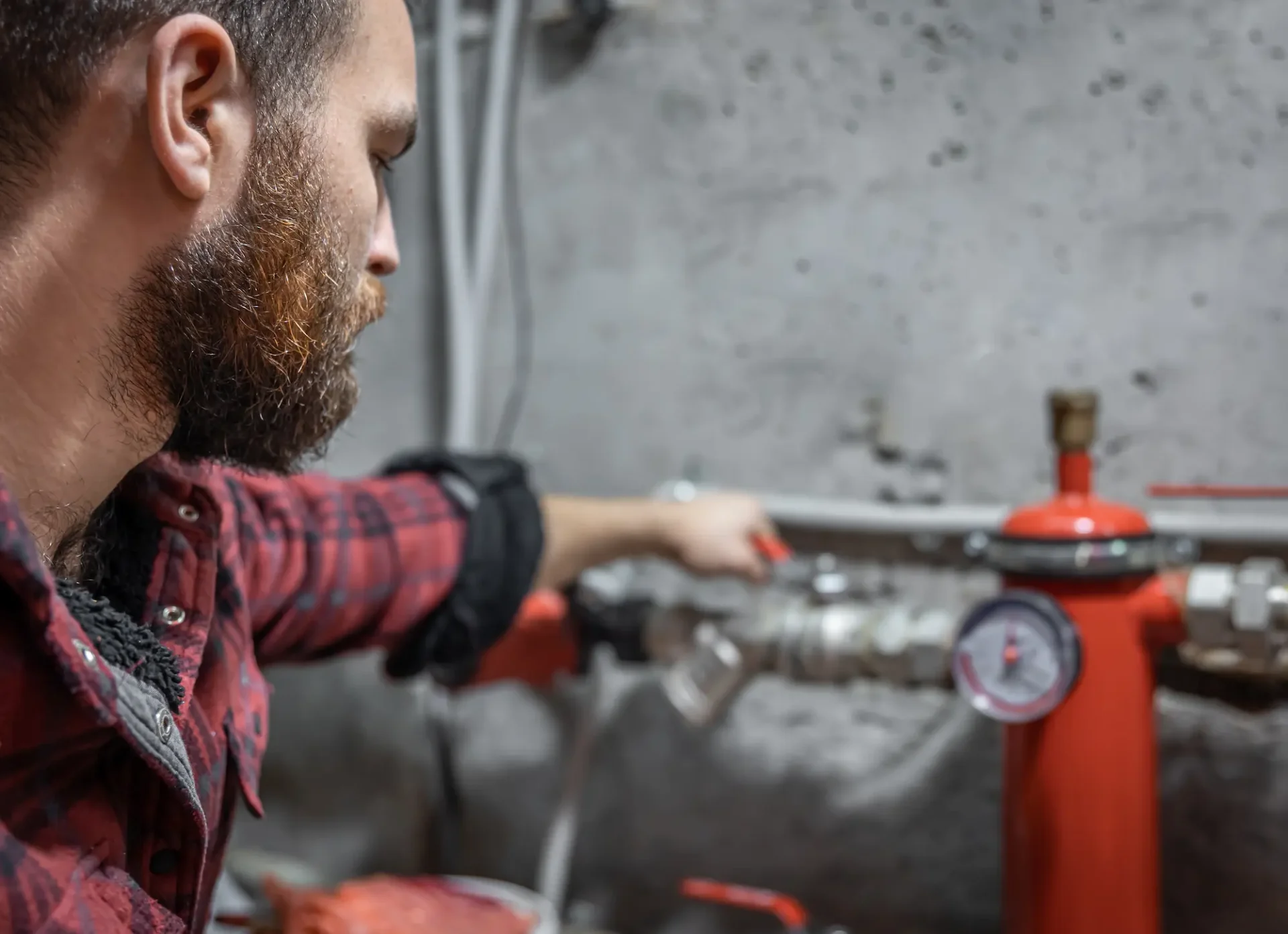Oil boilers are a fundamental piece of equipment in many homes and businesses, especially in areas where the supply of natural gas is limited or non-existent. Their internal operation is a complex process that combines technology, efficiency, and sustainability to provide reliable and safe heating. In this article from Lisbona Oil, we will explore how a diesel boiler works, focusing on its key components, operation, and environmental impact.
Technology Behind the Operation
Oil boilers work through a controlled combustion process. Diesel, a type of fuel derived from petroleum, is burned in a combustion chamber inside the boiler. This combustion generates heat, which is then transferred to the water circulating through a system of pipes.
The heart of the boiler is its oil burner, which atomizes the fuel and mixes it with air to create an efficient and clean flame. The amount of fuel and air is carefully controlled to maintain optimal combustion and maximize energy efficiency.
Another key component is the heat exchanger, which absorbs the heat generated by the combustion and transfers it to the water. This hot water is then distributed through radiators or underfloor heating to provide warmth to the home or building.
From our company, we offer a service for the installation of certified oil tanks with their own dispenser.
Now that we have seen how a diesel boiler works, let’s explore other key aspects that should be considered.
Energy Efficiency
Energy efficiency is a crucial aspect of the operation of diesel boilers. Modern boilers are designed to maximize efficiency by minimizing heat loss and optimizing fuel combustion.
One way efficiency is improved is through the use of condensing technologies. This allows the latent heat of water vapor in the exhaust gases to be utilized, enabling more useful energy to be extracted from the fuel and reducing greenhouse gas emissions.
In addition, modern oil boilers are often equipped with advanced control systems that automatically adjust the amount of fuel and air according to heating needs. This not only improves efficiency but also reduces wear on the equipment and extends its lifespan.
Environmental Sustainability
Despite their advantages in energy efficiency, oil boilers still have a significant environmental impact due to combustion gas emissions. However, there are measures that can be taken to mitigate this impact and make oil boilers more sustainable.
One such measure is the use of biofuels, such as biodiesel, which is produced from renewable sources like vegetable oils. Biofuels emit fewer greenhouse gases than conventional diesel, reducing the carbon footprint of heating.
Additionally, regular maintenance and cleaning of boilers can improve their efficiency and reduce emissions. This includes cleaning the burners, inspecting the combustion systems, and optimizing combustion to minimize the production of pollutants.
We remind you that if you’re interested, we offer home oil delivery in Malaga and home oil delivery in Granada.
In conclusion, diesel boilers are a popular option for heating in many parts of the world, thanks to their advanced technology, energy efficiency, and ability to provide reliable heat. However, it is important to recognize their environmental impact and take steps to make their operation more sustainable.
Understanding how a diesel boiler works and how to improve its efficiency and sustainability is essential to maximize its performance and minimize its environmental footprint. With innovative technologies and proper maintenance practices, oil boilers can continue to be a viable and sustainable heating option in the future.
We hope you found our article interesting, and if so, don’t hesitate to visit our blog. We think you might be interested in our post about: Where can you sleep and park with a motorhome?
